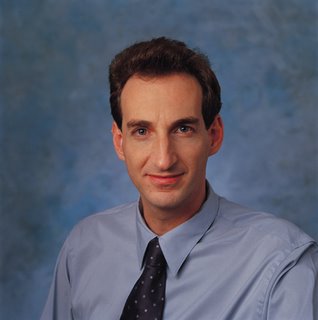In two articles published by EETimes, the quality of DVB-H broadcasts from the world cup were evaluated. The first article discusses the personal experience of the reporter using an HTC PDA with a DVB-H SD receiver card powered by Philips Semiconductor. The reporter describes a disappointing user experience which includes jerky pictures, dropped frames and frozen images when trying to watch the T-Systems DVB-H trial broadcast in the Berlin world cup stadium. Only towards the end of the article we discover what is probably the real reason for this poor performance: "Admittedly, the handset and DVB-H receiver/demodulation chip I used weren't among the official devices currently being used in the German DVB-H trials". The importance of interoperability testing...
The second article provides a second-hand report of DVB-H reception in Europe's first commercial DVB-H service launched by 3 in Italy. The tests, performed by French DVB-H receiver vendor DibCom using the LG U900 and Samsung P910 handsets, found excellent signal reception around Rome and Milan, even while driving at 160 Kilometers per hour. However, the service suffers from a 15-second initialization time, and a 6-second channel switch time, which DibCom executives refer to as "acceptable"...
Thursday, June 29, 2006
Sunday, June 18, 2006
Mobile TV Chipset Prices Fall Below $10
According to a new market research report published by ABI Research, the price of Mobile TV chipsets from several vendors has fallen below the $10 price point, enabling the technology to gain serious traction in the high-end and smart phone handset segments by early 2007. ABI Research expect the price to fall below $5 in the next few years, enabling mass market adoption of the technology following its integration in mid-tier handsets. According to the report, the major handset semiconductor vendors such as TI, Freescale and Analog devices have the full handset system knowledge which is required for integrating the mobile TV function, while newcomers such as DibCom, Frontier Silicon and Siano Mobile have the advantage of focusing exclusively mobile TV technologies. Siano Mobile recently announced a joint reference design with Intel for mobile TV enabled 3G handsets, using the Xscale-based "Mohanas" application processor.
Wednesday, June 07, 2006
DVB-H and T-DMB Chip Vendors Reach One Million Mark
In two separate announcements this week, DibCom claimed that it had shipped over 1 million DVB-H chips, and Frontier Silicon announced shipment of 1 million T-DMB chips. The chips are powering handsets by Samsung and LG used in the initial launches of T-DMB in Korea, Germany and China, and DVB-H in Italy and Finland. This significant milestone marks the beginning of the early market phase for Mobile TV adoption, which according to several industry estimates is expected to reach over 1 million subscribers this year, and over 100 million subscribers by 2010.
Sunday, June 04, 2006
BBC and ITV Launch Mobile TV Trial in the UK
tThe Observer posted an exclusive report today claiming that BBC and ITV will join forces in a six month mobile broadcast TV trial which will be held in the UK, based on DAB technology. The observer claims that the companies will announce the trial tomorrow, in conjunction with several partners including Samsung, LG, MTV and Cartoon Network. The report does not state whether the trial is based on the T-DMB technology, which is used in MFD's commercial mobile TV service in Germany, or DAB-IP technology, which was used in the trial held earlier this year in the UK by BT Movio and Virgin Mobile.
Germany Launches Two Mobile TV Networks
Days before the FIFA World Cup, Germany has launched two separate mobile broadcast TV networks that will offer content from the games as well as other TV and radio channels.
The first service is based on T-DMB technology, and was launched by mobile operator Debitel and broadcast service provider MFD. The service will use the Samsung SGH-P900 and LG-V9000 handsets, and will be available initially in 5 German cities: Berlin, Cologne, Munich, Stuttgart and Frankfurt. Later this month, the service will spread to more cities including Gelsenkirchen, Hamburg and Hanover. At launch, 4 TV channels will be available: ZDF, MTV, N24 and a channel produced by PRO7. The monthly fee which Debitel plans to charge for this service is 9.95 Euros.
The second service, still in a trial stage, is based on DVB-H technology, and was launched by Germany's four major mobile operators: T-Mobile, Vodafone, O2 and E-Plus. The trial is being held in Hamburg, Berlin, Munich and Hanover, and will continue until the end of August. The content for the trial includes two national TV channels, ARD and ZDF, and 16 radio channels.
The first service is based on T-DMB technology, and was launched by mobile operator Debitel and broadcast service provider MFD. The service will use the Samsung SGH-P900 and LG-V9000 handsets, and will be available initially in 5 German cities: Berlin, Cologne, Munich, Stuttgart and Frankfurt. Later this month, the service will spread to more cities including Gelsenkirchen, Hamburg and Hanover. At launch, 4 TV channels will be available: ZDF, MTV, N24 and a channel produced by PRO7. The monthly fee which Debitel plans to charge for this service is 9.95 Euros.
The second service, still in a trial stage, is based on DVB-H technology, and was launched by Germany's four major mobile operators: T-Mobile, Vodafone, O2 and E-Plus. The trial is being held in Hamburg, Berlin, Munich and Hanover, and will continue until the end of August. The content for the trial includes two national TV channels, ARD and ZDF, and 16 radio channels.
Subscribe to:
Posts (Atom)
